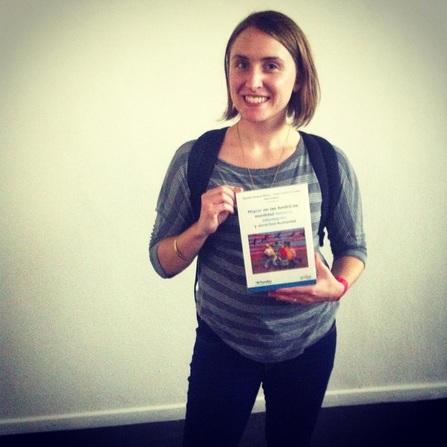|
A week ago, I was invited to speak on Entrecruzamientos, a program of Radio Educación, about access to information and labor recruitment. The interview was organized by Fundar and Gedisa, who coordinated and published Migrar en las Americas, as part of the book promotion campaign. You can listen to the interview online here. In the interview, I spoke about the vulnerability that labor recruitment imposes--not only on migrant workers, but also on families and entire communities. This is a perspective that I think deserves a much deeper examination. I also spoke about solutions, and proposed that migrant workers have to create their own solutions and become their own advocates. Migrant workers cannot expect that governments, employers/recruiters or even advocates will effectively ensure the protection of their rights--they have to organize and become their own advocates. The more that I delve into the issue of labor recruitment, the more that I feel this is true. The interests of capital (which are opposed to those of migrant workers) will always be more important to the government than the interests of migrant workers. This means that any policy or program implemented by the government to supposedly improve protections for workers will never truly do so. No state-provided solution will ever undermine the interests of capital in any real way. This leaves workers to organize and create their own solutions--independent of the state. Contratados.org is a good start. Also, here is a picture of me with Migrar en las Américas, where my co-authored chapter appears, for sale at the Fondo de Cultura Económica. Sarah // Mexico City, Mexico
Comments are closed.
|
archives
January 2022
categories
All
disclaimerThe views expressed in this blog and on this website are my own.
|

 RSS Feed
RSS Feed